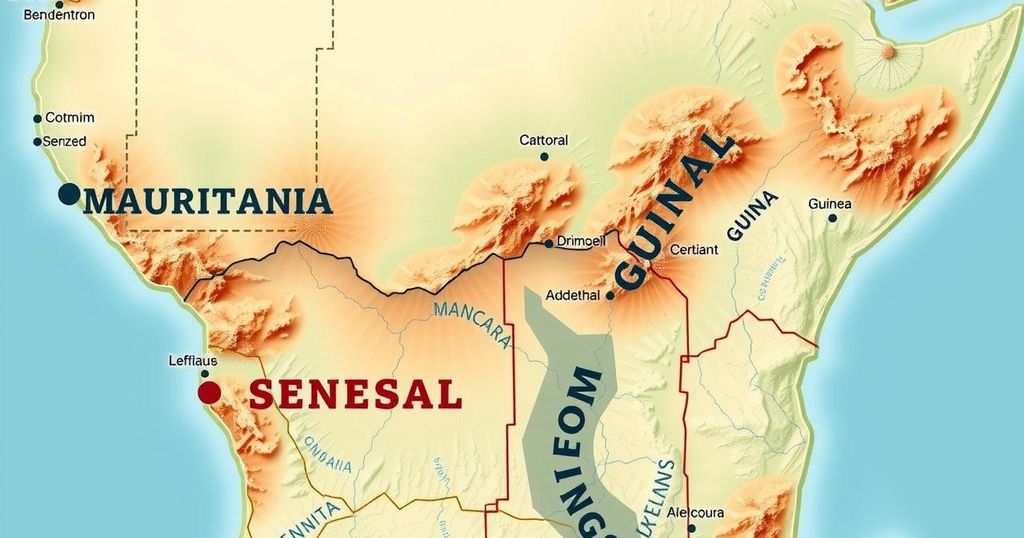Impact of Deteriorating Security in Mali on Border Regions: Insights from the GRANIT Report

The deteriorating security in Mali has severely impacted border regions, with 97% of localities in Tombouctou and 73% in Ségou affected. Flooding and rising market prices further exacerbate conditions. Notably, many localities have seen significant population displacements, particularly in Ségou, necessitating urgent humanitarian responses.
The security situation in Mali has significantly deteriorated, affecting border areas including Mauritania, Senegal, and Guinea. According to REACH’s Humanitarian Situation Monitoring conducted in the Central Sahel, from July to October 2024, 97 percent of assessed localities in Tombouctou and 73 percent in Ségou experienced various shocks linked to insecurity, violence, or looting. Notably, the Goundam and Gourma-Rharous circles in Tombouctou reported that all surveyed localities were affected.
Additionally, in the Niafunké circle near the Mauritania border, 97 percent of localities reported similar impacts. Other major shocks affecting these areas included widespread flooding, impacting 72 percent of localities in Tombouctou and 62 percent in Ségou. Furthermore, sudden increases in basic market prices were noted, with 58 percent of Tombouctou localities and 43 percent of Ségou localities affected.
During the same timeframe, reports indicated that displacements occurred in 34 percent of assessed localities in Tombouctou and 23 percent in Ségou, as people were forced to flee their homes. While most displaced individuals remained within the region, in many cases, the proportion of those leaving did not exceed 25 percent of a locality’s population. However, in Ségou, in 24 percent of localities with reported population movements, estimates suggested that over 50 percent had fled or left their locality.
The deteriorating security situation in Mali has profound implications for bordering regions such as Mauritania, Senegal, and Guinea. The prevalence of violence, looting, and other shocks has led to significant displacement and increased market prices, exacerbating vulnerabilities in these areas. The findings underscore the urgent need for comprehensive humanitarian interventions to address the challenges faced by local populations.
Original Source: www.unocha.org








